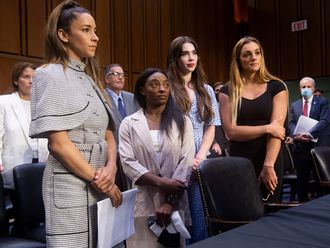Washington: In a sign of how far the nation has moved from supporting solitary confinement for inmates, the leading organisation for the nation’s prison and jail administrators on Wednesday called for sharply limiting or even ending its use for extended periods.
The statement from the Association of State Correctional Administrators, whose members are largely responsible for the growth in solitary confinement in recent decades, is its most forceful to date on the practice. Calls for reducing the use of solitary have taken on greater urgency since President Barack Obama ordered the Justice Department in July to review its use in federal prisons.
A day earlier, California announced plans to overhaul its use of solitary confinement, including by setting strict limits on the prolonged isolation of inmates, as part of a legal colony that is expected to sharply reduce the number of inmates held in the state’s isolation units.
Congress and more than a dozen states are also considering placing limits on the use of solitary confinement, which is used on tens of thousands of inmates each year as punishment or to protect them from one another, as well as to isolate prisoners with severe mental illnesses.
“Prolonged isolation of individuals in jails and prisons is a grave problem in the United States,” the statement said. It added that the organisation was committed to “ongoing efforts to limit or end extended isolation,” though it did not propose specific policies.
The organisation’s members include the leaders of each state corrections agency, as well as the heads of local jails in large cities, including Los Angeles, New York and Chicago.
To reduce the number of people in solitary confinement, prison administrators are focusing on inmates who have been in isolation for 30 days or longer, usually for disciplinary reasons, said George Camp, the group’s co-executive director.
“We are trying to get the answers to ‘How long is long enough?’ and ‘How long is too long?’” he said. “It might not be something we’re going to be able to eliminate because there are some very dangerous people in prison who have demonstrated that they’re a danger to others in prison.”
Any efforts to end or significantly restrict the use of solitary are likely to face opposition from prison guards, who view the practice as vital for maintaining prison safety and whose unions often have substantial clout.
Disciplinary policies
“Today’s disciplinary confinement policies have evolved over decades of experience, and it is simply wrong to unilaterally take the tools away from law enforcement officers who face dangerous situations on a daily basis,” the New York State Correctional Officers & Police Benevolent Association said Wednesday about the prison directors’ statement.
While the use of solitary confinement in jails and prisons has grown steadily since the 1970s, the effort to roll it back is in its infancy, prison administrators acknowledge.
Recent changes have included ending the use of solitary to punish inmates whose disruptiveness is related to mental illness, and providing a transition period before releasing inmates who were kept in isolation because they were deemed dangerous.
The transition idea has resonated with prison directors since Tom Clements, Colorado’s prison’s chief, was fatally shot at his house in 2013 by a man who had spent much of his eight prison years in solitary confinement. The man had been released directly from isolation.
Colorado’s current prison director, Rick Raemisch, who in 2014 voluntarily spent 20 hours in solitary in a 7-by-13-foot cell to experience the psychological effect of isolation, said Wednesday that the state now had a transition program and had not released anyone directly from restrictive housing in nearly a year and a half.
“We realised it was a time for a change,” Raemisch said. “We talked to our executive team and said, ‘Somehow we’ve lost sight of our mission.’ To send someone out worse than they came in is not part of our vision.”
Last year, Colorado also ended its policy of placing prisoners with severe mental illnesses in long-term solitary confinement.
In Washington state, Bernard Warner, the prison chief, said the murder of Clements had pushed other prison directors toward changing their solitary confinement policies. Warner said that when his state studied who was being kept in solitary confinement, officials found that a disproportionate number were gang members and people with serious mental illnesses.












